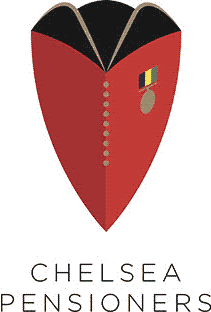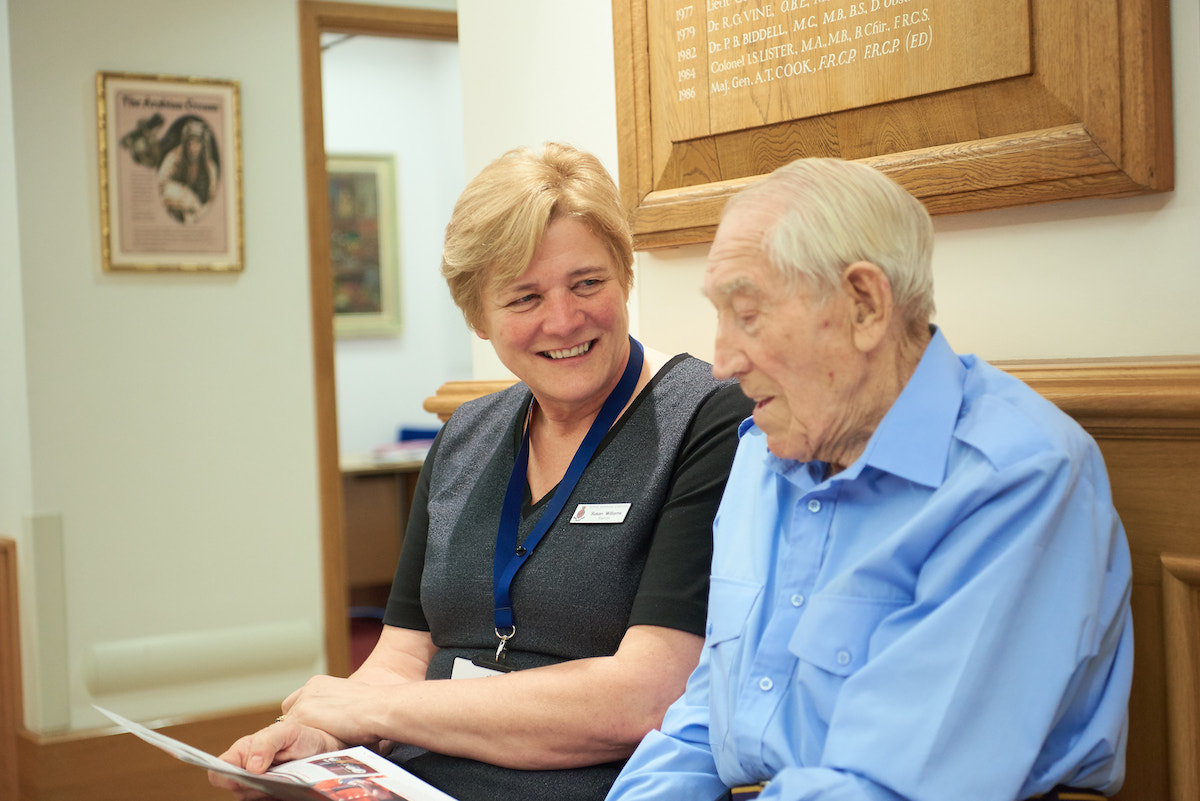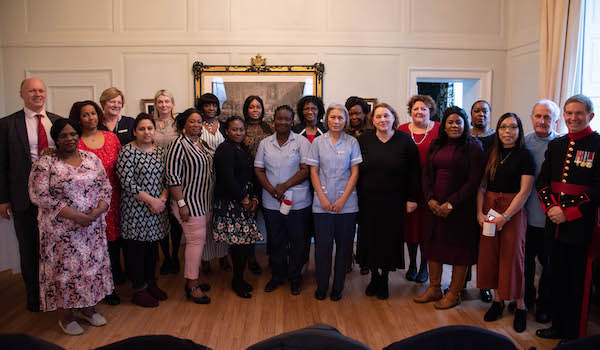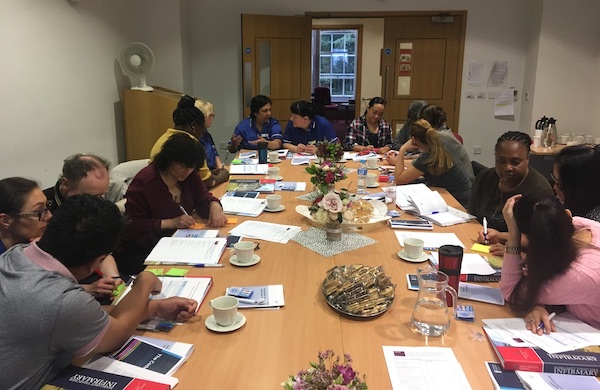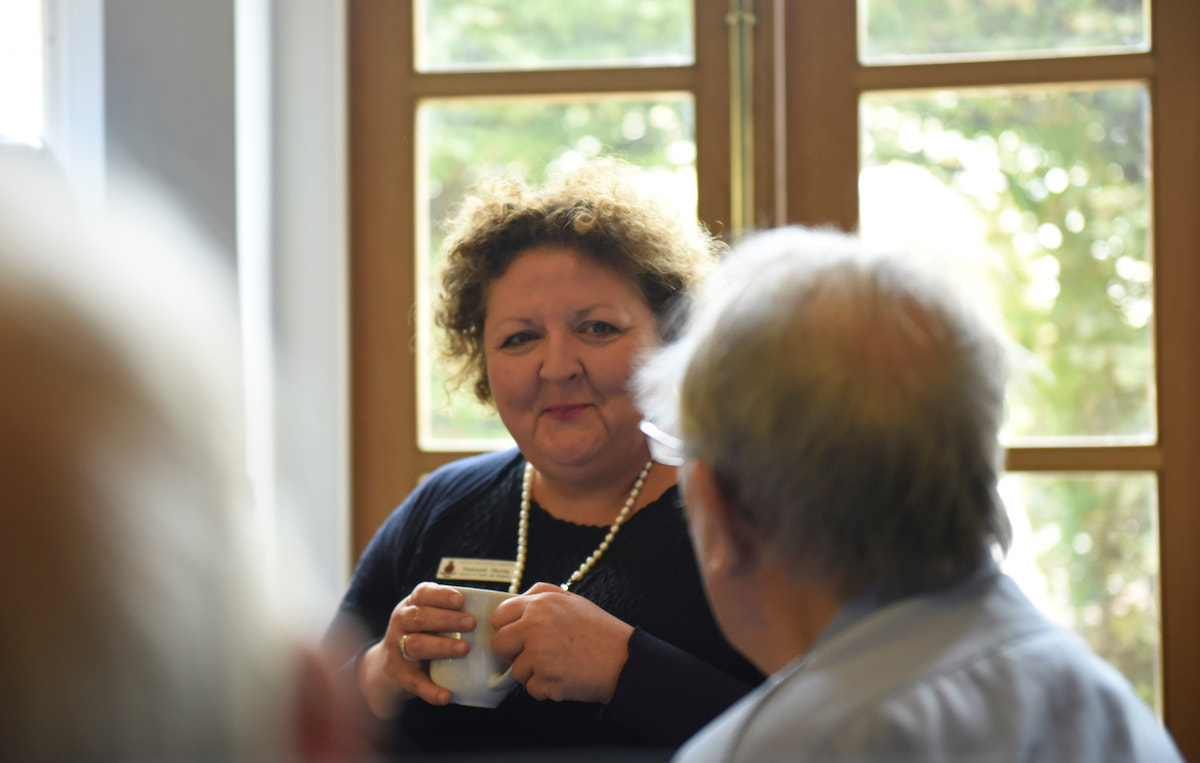
Royal Hospital Infirmary Awarded Platinum Accreditation
18th February 2019
The Royal Hospital is proud to have achieved 'Platinum' status under the Gold Standard Framework – a national scheme of excellence for end-of-life care.
Having achieved a 'Gold' three years ago, we have now won the highest award available and the scheme praised our outstanding quality of care saying:
“We would like to use some of your work as showcased examples of best practice to encourage and inspire others.”
Deborah Sturdy, our Director of Health and Wellbeing, says that respect for our residents is central to our success:
“We pride ourselves on the dignity our Pensioners are afforded throughout the care we provide at the end of life. This is a team effort and the support they receive from our GP, Care Staff, welfare team and Chaplain is recognised in this achievement.”
The Royal Hospital is home for our Pensioners
Discussing end-of-life care starts long before someone is ill – if the Pensioner is happy with that. As Matron Susan Williams explains, this reassures them and means they can make bespoke care plans so everything is in place at the end:
"Someone might say, ‘I want Classic FM playing’ or ‘I want the curtains closed’. Whether they want something religious or personal, it’s about respecting the individual.”
Most relatives live far away, so we look after them. There’s a comfortable relaxing two-bedroom flat in the infirmary – equipped with everything they might need, right down to chocolates in the fridge – where they can stay for as long as they need to. Our staff are valued too and given the support they need when someone they’ve been caring for passes away. We meet to discuss how they felt about the care we delivered and if there was anything we could improve.
Medication is well managed and Susan says Pensioners don’t need to worry about pain or fear. If they have no visitors, a member of staff will volunteer to sit in their room at night to reassure them.
“We notice when people are feeling low and we act, if they were at home, they might just give up. We have activity teams leading gentle, interesting, stimulating things, so Pensioners don’t sit around thinking too much. Dogs visit from Battersea and we have a range of other activities which are appropriate to our residents.”
“The most important thing is individualising what we do. We tell them ‘you will be supported and so will your family. We won’t make decisions about you, but with you.’ Our Pensioners maintain their voice to the end.”
The quality of care here is a team effort. Everyone plays a part, from the clinical team to the Captains, the Chaplain to the therapists. Our facilities team are key to us too. If there is an issue reported – even a light bulb in one of the ward rooms, they understand that it’s a priority and it will be dealt with immediately, as the Pensioner may not be able to wait another day. Susan says that the accreditation means a great deal to them all:
“The Gold Standard gives us validation. It’s lovely to think we’re recognised for what we’re doing – care, dignity, attention to detail.”
